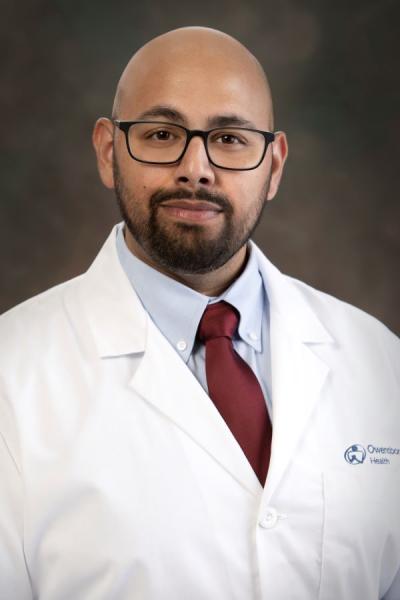Published on March 11, 2024
Achieve Quality Sleep With These Expert Tips

It’s National Sleep Awareness Week — a time to shed light on the significance of quality sleep for maintaining good overall health.
Sleep is often underestimated in its importance, yet it plays a fundamental role in our physical, mental, and emotional well-being. Research has shown that consistent, restorative sleep is essential for various bodily functions, including immune system regulation, cognitive function and emotional regulation. Lack of adequate sleep has been linked to a myriad of health issues, such as increased risk of heart disease, diabetes, obesity, and mental health disorders.
As we commemorate National Sleep Awareness Week, Owensboro Health Sleep Medicine specialist Abinash Joshi, MD, shares a few essential tips for getting a restful night’s sleep:
Consistency
No matter if it’s the weekday or weekend, consistency is key. Keeping consistent bedtimes and wake times are essential to help improve the quantity and quality of sleep, no matter if you have a night or two of bad sleep. Our bodies have its own internal clock called the circadian rhythm and it thrives on consistency. Most of us use an alarm to wake up in the morning but I believe it may be equally prudent to have a bedtime alarm to ensure sleep consistency.
Keep It Dark
With so much light stimuli surrounding us on a daily basis, we need to embrace darkness in the evening to trigger the release of a hormone called melatonin. Melatonin helps regulate the timing of our sleep. Putting away phones, tablets, computer screens and even dimming down the lights around the house about an hour before bedtime can help regulate the critical sleep hormone of melatonin.
Keep It Cool
Our brain and body need to drop their core temperature by about 2-3 degrees Fahrenheit to help initiate sleep and stay asleep. This is why we usually find it easier to sleep in cooler temperatures. I recommend setting the thermostat between 65-68 degrees F at bedtime.
Don’t Lay Waiting
It is not recommended to lay in bed for long periods of time trying to get to sleep. Generally, if you are unable to fall asleep within 20-25 minutes or if you wake up and cannot fall back asleep within 20-25 minutes, the recommendation is to get out of bed and do something different (without screens) and only return to bed when you are sleepy. Your brain is highly associative and if you lay awake in bed for long periods of time, it will quickly associate the bed with wakefulness, and we need to break this association. By getting out of bed and doing something different, we are relearning the association that the bed is for quality sleep.
Limit Caffeine and Alcohol
Avoid caffeine roughly 8-10 hours before bedtime. Not only can caffeine late in the day lead to insomnia, it can also lead to a fragmented sleep pattern and poor sleep quality. Alcohol late in the day can also fragment sleep and inhibit REM sleep, which is important for memory and emotional processing. If you are indulging in caffeine or alcohol, keeping it earlier in the day can help maintain sleep quality.
It is during deep sleep that our bodies repair and rejuvenate themselves, helping to enhance memory consolidation, improve mood, and boost overall energy levels. Therefore, prioritizing sleep by establishing a bedtime routine, creating a comfortable sleep environment, and practicing relaxation techniques can significantly impact one's health positively.
By understanding and valuing the importance of quality sleep, we can take proactive steps towards better health and well-being. So, let's embrace the power of a good night's sleep and reap the countless benefits it brings to our overall health.
Want better rest? Request an appointment with Abinash Joshi, MD; Sarah Neill, MD; Lindie Unsel, APRN; Crystal Heady, ARPN or Emily Freeman, APRN at OwensboroHealth.org.
About Owensboro Health
Owensboro Health is a nonprofit health system with a mission to heal the sick and to improve the health of the communities it serves in Kentucky and Indiana. The system includes Owensboro Health Regional Hospital, nationally recognized for design, architecture and engineering; Owensboro Health Muhlenberg Community Hospital; Owensboro Health Twin Lakes Medical Center; the Owensboro Health Medical Group comprised of over 350 providers at more than 30 locations; four outpatient Healthplex facilities, a certified medical fitness facility, the Healthpark; a weight management program, and the Mitchell Memorial Cancer Center.
On average each year, we have more than 19,000 inpatient admissions, deliver 2,000 babies and provide the region’s only Level III NICU. Owensboro Health physicians perform nearly 33,000 surgical procedures, including nearly 150 open-heart surgeries. Our physicians and staff have 90,000 Emergency Department visits and more than 1.25 million outpatient visits annually. Visit our home page for more information.